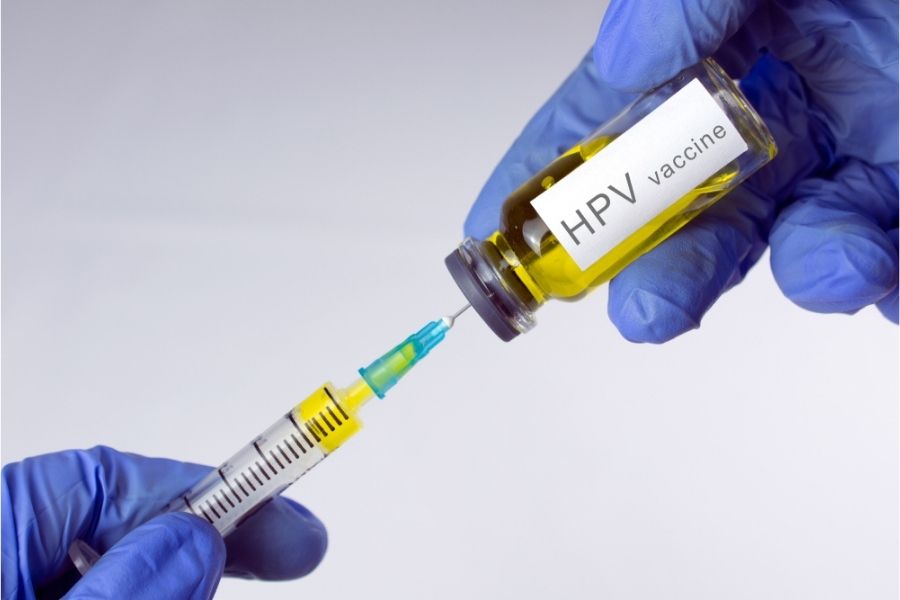“Precautions are better than cure.” This phrase is the most appropriate way to begin this article. So today we’re going to talk about a possible disease that we can avoid by simple precaution, and those precautions are HPV Vaccine and Pap smear tests, which can help you prevent cervical cancer. “Cervical Cancer” is a type of cancer that develops in the cells of the cervix, which is the lower part of the uterus that connects to the vagina.
Cervical cancer is the fourth most common cancer worldwide. The human papillomavirus is one of the major risk factors. This type of cancer develops in females at the cervix, which connects the vagina to the womb. Despite the fact that the condition is most common in women over the age of 30. All women who have ever been sexually active are at risk for developing cervical cancer. This is because sexual activity potentially exposes you to HPV. Women who have never been sexually active rarely develop cervical cancer.
The human papillomavirus can be passed from one person to another through sexual contact. However, this does not imply that every sexually active woman will develop cervical cancer.
Did you know? HPV-16 and HPV-18 are known to cause this cancer, and abnormal vaginal bleeding during or after sexual intercourse, pain during intercourse, abnormal vaginal discharge, and pelvic pain are some of the most common symptoms of cervical cancer in its advanced stages. Thus, getting vaccinated against cervical cancer is an urgent need that can save many lives.
What is the purpose of the HPV vaccine?
HPV strains spread through sexual contact are linked to the majority of cases of cervical cancer. Gardasil 9 is an HPV vaccine that has been approved by the US Food and Drug Administration for both girls and boys. If given before girls or women are exposed to the virus, this vaccine can prevent the majority of cases of cervical cancer.
This vaccine is also effective in preventing vaginal and vulvar cancer. Furthermore, the vaccine can protect against genital herpes, anal cancers, and mouth, throat, head, and neck cancers in both men and women. In theory, vaccinating boys against the types of HPV linked to cervical cancer could help protect girls from the virus by reducing transmission.
There are 3 HPV vaccines available globally:
- Bivalent
- Quadrivalent
- 9-Valent.
What Is Pap Smear And Does It Detect Cervical Cancer?
A Pap smear, also known as a Pap test, is a procedure used to screen women for cervical cancer. It is a test that collects cells from your cervix, which is the lower, narrow end of your uterus at the top of your vagina. A Pap smear can also detect cervical cancer early, giving you a better chance of a cure.
The first step toward preventing cervical cancer is detecting abnormal cells early with a Pap smear. A pelvic exam is usually performed in conjunction with the Pap smear. The Pap test may be combined with a test for human papillomavirus (HPV), a common sexually transmitted infection that can cause cervical cancer. The HPV test may be used instead of a Pap smear in some cases.
What Do You Need to Know About Screening?
- Cervical cancer can be prevented or detected using the Pap test and the HPV test.
- The Pap test (or Pap smear) looks for precancers, which are cell changes on the cervix that, if not treated properly, can progress to cervical cancer.
- The HPV test searches for the virus (human papillomavirus) that causes these cell changes.
- If you have a Pap test, the cells will be examined to see if they are normal.
- The cells will be tested for HPV if you have an HPV test.
What are the factors that increase an individual’s risk of contracting the HPV virus if they are not vaccinated?
- Having sex that is unprotected
- Having multiple sexual partners
- Contamination from contagious wounds
- A family history of cervical cancer
- Tobacco use, regardless of whether it’s smoking or chewing
- Immunosuppressed
- Having a number of full-term pregnancies
- Consistent consumption of unhealthy foods
- Usage of contraceptives for the long term
At Diva Women’s Hospital, your health is our top priority
Awareness about cervical cancer is extremely low in India, mainly in rural areas. Women are often shy and do not want to discuss their symptoms openly. We at Diva Hospital, the best gynaecology hospital in Ahmedabad, always make sure that our only concern is the health of our patients, not their area or background. At every stage of life, from puberty to adolescence to menopause, a one-of-a-kind health care concept is used that is tailored to your specific needs. Diva is here to listen to you, to care for you, and to make things easier for you on a physical, mental, and emotional level with the help of the best gynaecologists and obstetricians in Ahmedabad. It is our responsibility to help our patients achieve the best possible health.

